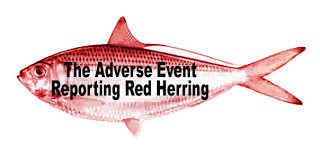While Sidney Taurel, Lilly’s chairman and chief executive officer, urged “the health-care industry, medical community and U.S. government to work more closely” to use information technology to eliminate the paper-based physician office (see “Lilly’s Taurel: Go paperless, share records“), Lilly marketers were distributing Cymbalta promo mailers to physicians, offering them a black, simulated leather letter tray to more efficiently hold paper (see image below).

“The paperless physician office is a myth,” declares the mailer. “This tray will keep you prepared for the mountain of forms, files, and folders headed your way.”
But the story is more than the left hand not knowing what the right hand is doing. It’s about drug safety and Lilly’s lip service to drug safety.
Taurel called for a paperless physician office so that pharma companies can better track drug safety problems:
Such a move could provide a clearer picture about the safety and effectiveness of medicines, and give earlier warnings about side effects of some drugs, such as Vioxx. The arthritis drug was withdrawn by drug maker Merck three years ago over concerns about heart attack and stroke after long-term use.
“The use of prescription medicines always will be a matter of balancing benefits and risks,” Taurel will say, according to an advance copy of his speech. “Frankly, that’s the first and most basic insight that needs to be understood by health-care consumers, not to mention the news media and politicians.
“Fortunately, systems are now within our grasp to much more quickly identify both the true benefits and the full extent of risks associated with medicines in widespread use.”
Yet, the Cymbalta promo mailers — in which the paper tray gift is offered to physicians — was cited in an FDA letter for making misleading efficacy claims and understating risk:
The letter said a mailer for the fast-selling drug overstates effectiveness and “omits some of the most serious and important risk information associated with its use.”
The company is working with the FDA “to gain a greater understanding of their concerns,” Lilly spokesman Charlie McAtee said. Lilly will take action once it has “more clarity” on the agency’s comments, he said. (See “FDA Asks Eli Lilly Stop of Promotion of Cymbalta.”)
Perhaps Lilly and FDA need to go paperless in order to achieve better, more efficient communications so that they can understand one another.
“There used to be some good excuses for not understanding FDA, and for the time lags in obeying FDA warning letters,” I imagine Taurel saying. “Chief among them were the dependence on paper letters and the tyranny of distance, against which the postal service and even the fax machine were poor remedies, along with the sheer institutional complexity of the drug safety system.”
P.S. The leather paper tray offer not available in California and Minnesota. Lilly says “due to state regulations, we are unable to offer an educational or practice-related items to physicians” practicing in these states. The implication is that these state laws “prohibit” Lilly from making this offer in CA and MN when, in fact, the law — at least in CA — merely requires that Lilly have a compliance program that specifies limits on gifts or incentives provided to physicians and other health care professionals that are consistent with OIG Guidelines and PhRMA Code. The law also requires that compliance programs include specific annual dollar limits on gifts, promotional materials or “items or activities” provided to physicians and other health care professionals.
I suspect that the paper tray does not comply with these guidelines — maybe it’s too expensive — and that is why Lilly won’t offer it to CA and MN docs!









![6 Digital Tools at the Center of Healthcare Digitalization [INFOGRAPHIC]](http://ec2-54-175-84-28.compute-1.amazonaws.com/pharma-mkting.com/wp-content/uploads/2021/04/6DigitalTools_600px-100x70.jpg)




